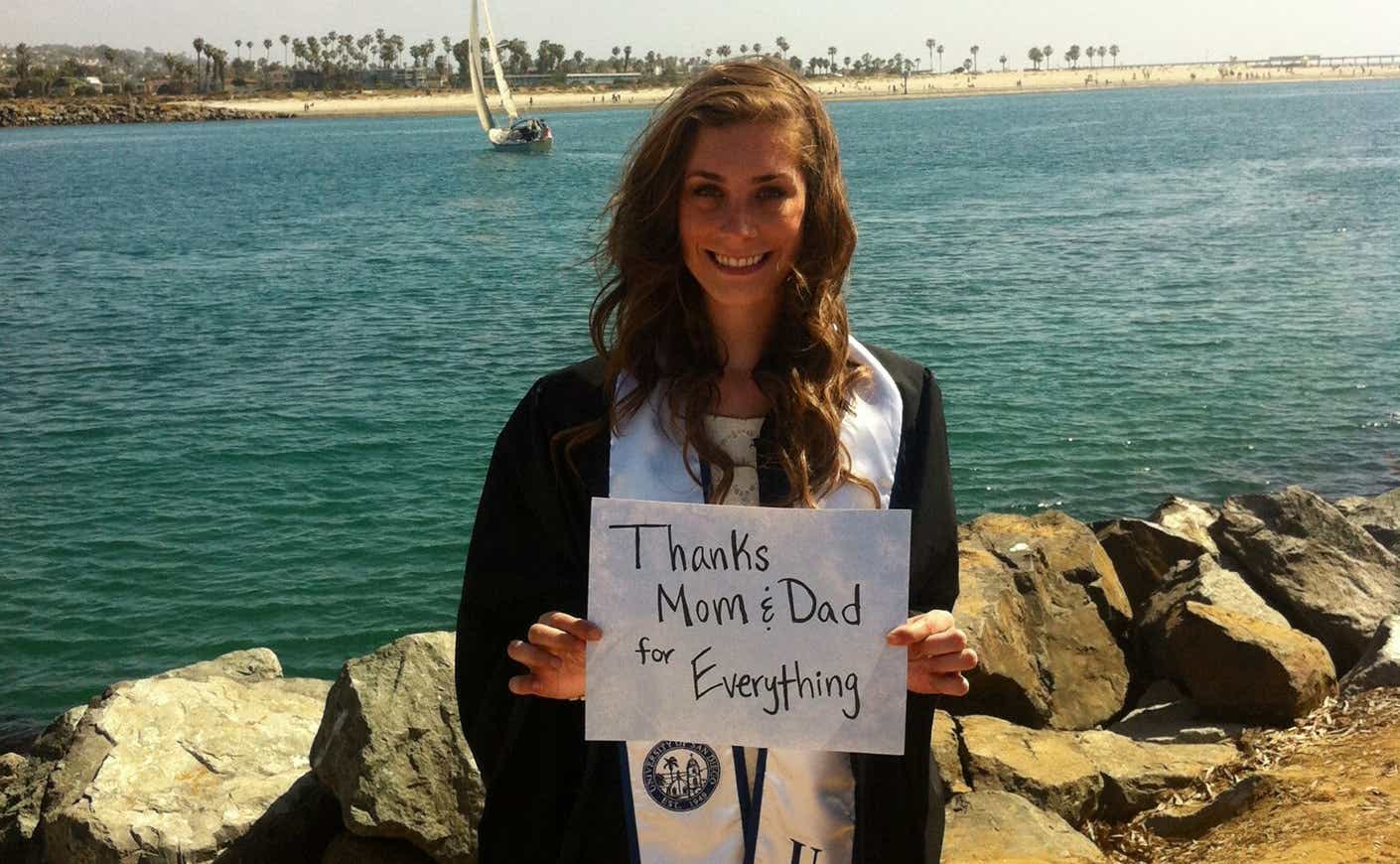When Jacqueline Rush was 16, she started exhibiting the classic symptoms of colorectal cancer: bloody stool, chronic constipation, piercing abdominal pain. But every doctor she saw, from her pediatrician to the clinicians she encountered in the ER, wrote it off as hemorrhoids and instructed her to cut dairy or gluten from her diet.
“They all said, 'You just don’t develop cancer that young,'” Rush’s mother, Joan Rush, tells us.
It wasn’t until Jacqueline was 20 and a sophomore at the University of San Diego that a gastroenterologist ordered her a colonoscopy. By that point, she’d developed stage 3 rectal cancer and was diagnosed with Lynch syndrome, a genetic disorder that she’d inherited from her father and which raises the risk of CRC and several other cancers. After undergoing multiple surgeries and a grueling regimen of chemotherapy and radiation, Jacqueline died at 23 years old in 2014.
“If we would have known that Lynch syndrome was in the family, there’s no doubt in my mind that Jacqueline would still be here today,” Joan says. “Her symptoms would have been taken seriously, and the cancer would have been caught early.”

What is Lynch syndrome?
Lynch syndrome is the most common cause of hereditary colorectal cancer, and it's responsible for about 8 percent of cases that develop in patients under 50 (classified as young onset CRC). But people with the condition are also more likely to develop uterine, stomach, liver, kidney, brain, and some skin cancers, according to the Centers for Disease Control.
That’s because they’ve inherited mutations in five genes, which normally protect against cancer by finding errors in the DNA of our cells and fixing them. But when they’re not working properly, cells may grow out of control and form cancer. Depending on the type of mutation a person has, their risk for certain diseases can vary — ranging from a 20 to 80 percent lifetime risk for CRC and, for women, a 15 to 60 percent chance of developing endometrial cancer, says Will Bulsiewicz, M.D., a gastroenterologist and U.S. medical director of ZOE.
It’s estimated that one in 279 people has Lynch, making it more common than than the vastly better-publicized BRCA gene mutations, which predispose an estimated 1 in 500 women to breast and ovarian cancer. Yet researchers believe 95 percent of people with Lynch don’t even know they have it.

Joan had never heard of Lynch when her daughter Jacqueline was diagnosed in 2011. Neither had her husband, although he carries the genetic mutations, too — nor had Jacqueline’s pediatrician or any of the family's primary care doctors, for that matter.
“That was pretty shocking,” Joan says. “My OB-GYN hadn’t even heard of it, even though it’s been linked to uterine cancer.”
Getting tested for Lynch syndrome
Even though Lynch accounts for just 3 percent of all CRC cases, it’s become standard practice to screen all colorectal and endometrial cancer patients for the condition, Dr. Bulsiewicz says.
“Diagnosis can be life-saving,” he says, both for patients and for their families.
Doctors recommend that people with Lynch and their relatives who haven’t been tested for the mutations should get colonoscopies much earlier than the general population. According to the American Cancer Society, they should begin screening in their early 20s — or even earlier, if they have a family member diagnosed at a younger age.
Recently, researchers have also identified some surprisingly simple interventions that might protect people with Lynch. One large study found that Lynch patients who took aspirin daily for two years were much less likely to develop Lynch-linked cancers. Another found that consuming high volumes of resistant starch — a complex carbohydrate found in foods like brown rice, beans, and cashews — significantly reduced Lynch patients’ risk of developing some cancers (although not CRC).
These are all things that Joan says she wished she knew earlier. She’s now an advocate for Lynch syndrome awareness, and along with her husband, Allen Rush, she runs a foundation to help raise money for research.
“We’re trying to get the word out there so that Jacqueline’s story isn’t repeated,” Joan says.









